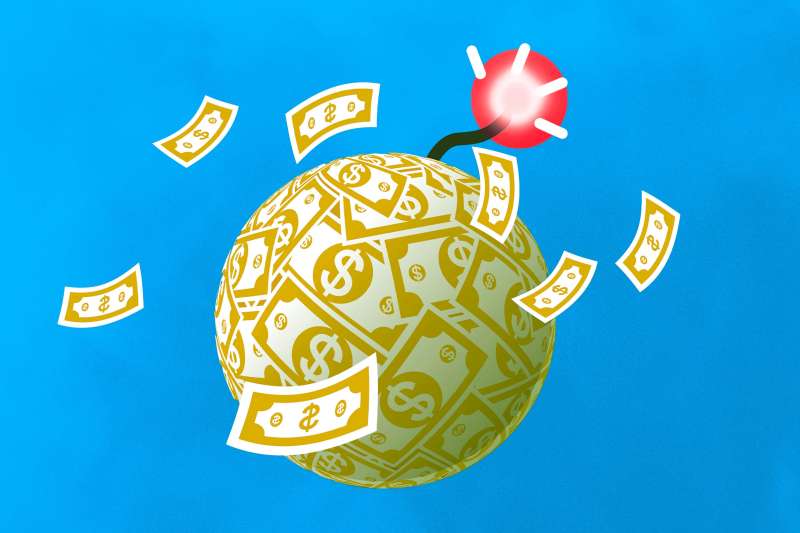80% of Americans Say They Have Financial Regrets — Here Are the Most Common Ones

Try as we might to live without regrets, we’re all bound to have a few — and when it comes to money, many Americans say they wish they'd done things differently.
The majority of U.S. adults have regrets about their financial choices, from not saving enough for emergencies to missing out on opportunities to invest, according to recent poll results. Nearly half of those surveyed said they don’t even have enough cash to cover three months of expenses if they were to lose their source of income.
These insights come from personal finance software company Quicken, which surveyed about 1,000 Americans in November and found that a whopping 80% said they have have financial regrets. The top regrets included not having a big enough emergency fund (mentioned by 28% of respondents), not investing aggressively enough (25%) and not buying a house when they were younger (22%).
Most of the people polled said that managing a mortgage can be tricky, but three-quarters said homeownership is a good way to build net worth. That’s easier said than done for most Americans lately, given that elevated mortgage rates and high home prices have made homeownership unaffordable for the average family. It makes sense, then, that people are kicking themselves for not making a purchase when mortgage rates were at historic lows a few years ago.
Smaller swathes of respondents also said they regret lending money to a friend or family member, borrowing money from a friend or relative, and not investing in stocks. (FYI: If you're interested in learning how to buy stocks, Money has a guide that'll walk you through it.)
Generationally speaking, a much smaller share of baby boomers (72%) said they had financial regrets compared to younger generations. Millennials (84%) were the age group most likely to own up to having money regrets, while a little more than 80% of Gen Zers and Gen Xers said the same.
Advice for the ages
Respondents overwhelmingly agreed that saving for retirement and living within your budget are the most important priorities regardless of age. They also said that it’s crucial to build strong credit early in adulthood and then stay out of debt in the decades leading up to retirement. By the time retirement rolls around, respondents said the most important financial priority is making sure they have enough income to last the rest of their lives.
That said, retirees have regrets of their own. In a separate survey published last spring, more than 60% of retirees said they would plan their retirement differently if they could do it over.
Following your own advice can be tricky. The Quicken survey found that while 81% of respondents said it’s crucial to pay off their credit card, almost half said they usually carry a credit card balance.
To be fair, credit card debt has become a problem for a lot of Americans the past few years thanks to inflation and the Federal Reserve’s subsequent interest rate hikes. The average annual percentage rate (APR) on credit cards is above 21%, the highest at any point since the Fed started tracking rates.
There is some good news on the horizon, though: The central bank has indicated that it plans to start lowering interest rates sometime this year, which should eventually tamp down those inflated APRs and make it cheaper for Americans to borrow money. Still, you may want to proceed with caution lest you regret it later.
More from Money:
4 Reasons to Love Today's Economy (and 4 Reasons to Hate It)
Child Care Now Costs More Than the Typical Family's Mortgage Bill
5 Ways to Pay Off Debt After the Holidays

